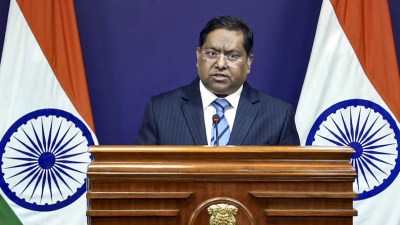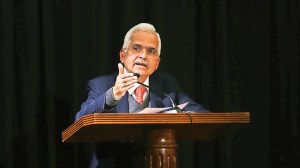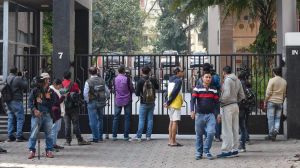Now, Olympic bids only with WADA approval
CAS snub in Akhtar, Asif case forced agency to take alternative route

At long last, the Pakistan Cricket Board PCB seems to have reconciled with the inherent defects in its dope testing and analysis system. It has agreed to abide by the World Anti-Doping Agency WADA guidelines. This is the fallout of a rather embarrassing situation arising out of the issue of pacers Mohammad Asif and Shoaib Akhtar when the CAS threw out WADA8217;s plea, saying it had no jurisdiction over the case.
While the change in the PCB8217;s heart will not have any effect on the two bowlers8217; fate, and while cricket still remains in the grey areas of the international dope testing canvas, WADA has managed a big coup of sorts in its bid to enforce testing regulations.
The draft revision of the World Anti-Doping Code, which is undergoing its final phase of stakeholders8217; consultation and will be discussed at the World Conference on Doping in Sport in Madrid in November this year, wants that the International Olympic Committee and international sports federations only accept bids from cities located in countries which have ratified the UNESCO Convention as a condition to host Olympic Games or world championships.
While this is not directly associated with cricket, any country that wishes to bid for any international sporting meet will have to ratify the UNESCO Convention on doping. That means it will be open to scrutiny in all spheres of sporting activity in the country. Which shall, by definition, also include cricket, if it is played in the country.
WADA8217;s Manager, Media Relations 038; Communications, Frederic Donze, told The Indian Express over e-mail that the WADA is now finally 8220; tying up the loose ends8221; and the changes should see to it that such situations are not repeated.
8220;It is likely that the revised Code will enter in effect on January 1, 2008, and that stakeholders will have until January 1, 2009, at the latest to implement it,8221; Donze said.
The fact will be stark for all events immediately on or after that. The Cricket World Cup two years after the last date of adaptation, of which India are co-hosts, will hence be fully in the WADA fold. Hence all dope testing issues at that World Cup will be directly monitored by WADA officials.
After the CAS snub, the ICC acting chief executive Faisal Hasnain had said in a statement: 8220;Following this case, we have amended the ICC Anti-Doping Code to ensure we have more powers to intervene if we feel a member is not doing all it can in the fight against drugs in cricket.8221; The Pakistan decision has followed.
- 01
- 02
- 03
- 04
- 05































